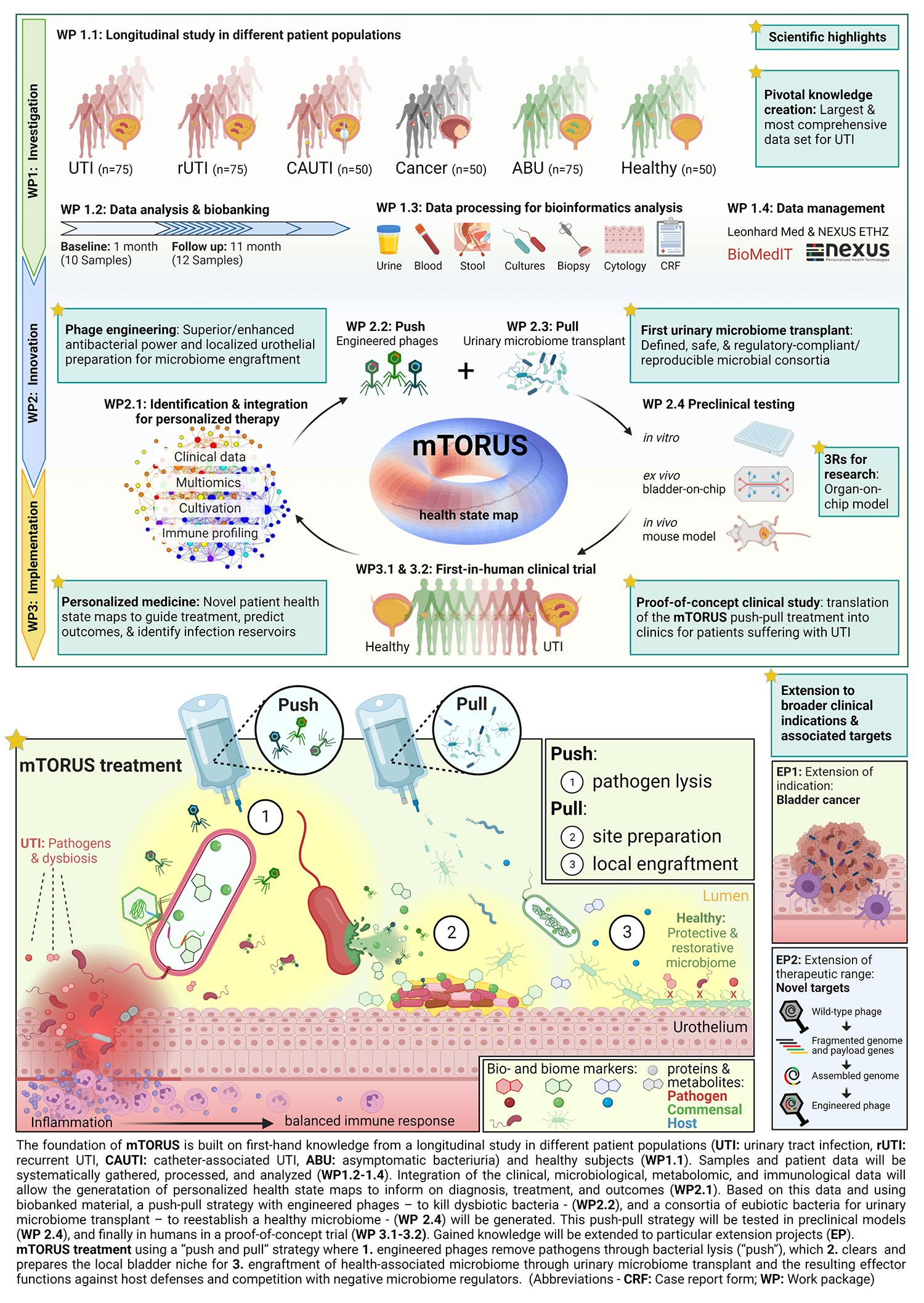The LOOP Zurich 2022: 2nd Call for Proposals for Research Consortia with Focus on Precision Medicine
mTORUS: Microbiome-based Therapeutic Options for Recurrent Urinary Symptoms
mTORUS: Scientific abstract
The relatively recent discovery that the urinary tract harbors a unique and largely uncharacterized microbiome indicates that there are new horizons for the diagnosis and treatment of urinary pathologies. The ability to measure microbiome changes and treat pathological imbalances will fundamentally improve patient care: this is the ultimate vision of our project, microbiome-based Therapeutic Options for Recurrent Urinary Symptoms (mTORUS), starting here with urinary tract infections. By building a strong foundation of biomedical data from patient samples that reflect different stages of bladder health and disease, this project will fill essential knowledge gaps in bio- and biome-markers of urinary disease and provide a rational design for a sustainable and complete microbiome modulation therapy. While conventional antibiotic treatment both obliterates the microbiome and increases the pressure for developing antibiotic resistance, recurrent infection, and exuberant immune reactions, mTORUS will offer a “push-pull” strategy combining (I) engineered bacteriophages to locally remove pathogens and prepare the ground for (II) human-derived urinary microbiota transplantation to reestablish a healthy microbiome and a stable local immunological status. This novel therapeutic regime will be derived with the help of a large compendium of longitudinal multi-modal data, collected from different levels of bladder dysbiosis. Data integration and sophisticated computational models form the basis for transforming these measurements into an interpretable representation of bladder health that itself is the foundation of personalized treatment. Both the developed strategies for microbiome modulation, and their supporting companion diagnostics, will help patients in Zurich and worldwide to break free from chronic dependency on antibiotics, and eventually even to prevent pathologies before they begin or progress to more serious conditions. These findings and therapeutic paradigms can be expanded beyond this initial indication, first to other bladder pathologies and other bacterial infections, and eventually for bladder cancer and systemic inflammatory diseases.


